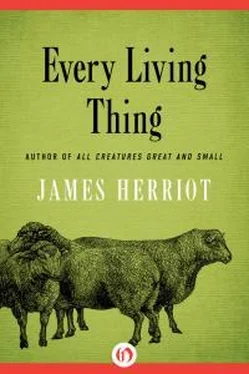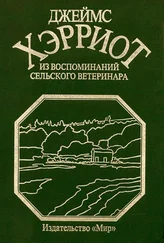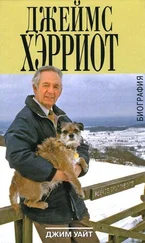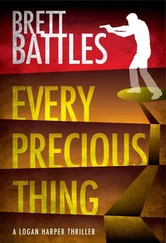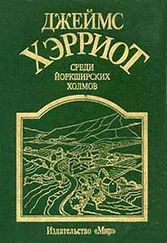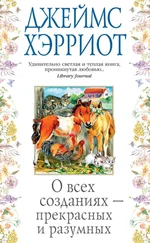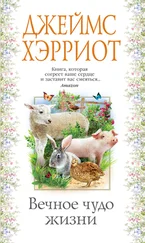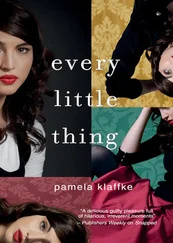Джеймс Хэрриот - Every Living Thing
Здесь есть возможность читать онлайн «Джеймс Хэрриот - Every Living Thing» весь текст электронной книги совершенно бесплатно (целиком полную версию без сокращений). В некоторых случаях можно слушать аудио, скачать через торрент в формате fb2 и присутствует краткое содержание. Год выпуска: 2011, ISBN: 2011, Издательство: Open Road Integrated Media LLC, Жанр: Домашние животные, на английском языке. Описание произведения, (предисловие) а так же отзывы посетителей доступны на портале библиотеки ЛибКат.
- Название:Every Living Thing
- Автор:
- Издательство:Open Road Integrated Media LLC
- Жанр:
- Год:2011
- ISBN:9781453227947
- Рейтинг книги:5 / 5. Голосов: 1
-
Избранное:Добавить в избранное
- Отзывы:
-
Ваша оценка:
- 100
- 1
- 2
- 3
- 4
- 5
Every Living Thing: краткое содержание, описание и аннотация
Предлагаем к чтению аннотацию, описание, краткое содержание или предисловие (зависит от того, что написал сам автор книги «Every Living Thing»). Если вы не нашли необходимую информацию о книге — напишите в комментариях, мы постараемся отыскать её.
Every Living Thing — читать онлайн бесплатно полную книгу (весь текст) целиком
Ниже представлен текст книги, разбитый по страницам. Система сохранения места последней прочитанной страницы, позволяет с удобством читать онлайн бесплатно книгу «Every Living Thing», без необходимости каждый раз заново искать на чём Вы остановились. Поставьте закладку, и сможете в любой момент перейти на страницу, на которой закончили чтение.
Интервал:
Закладка:
“You’ve got the red rope on the head, Dad?” he asked.
“Yes.”
“Well behind the ears?”
“That’s right.”
He nodded. Partly he was seeking information but he was also keeping me right, making sure I didn’t make any silly mistakes.
It was a source of wonder to me that both my children were fascinated by my job. I often thought that the sight of their father rushing around all hours of the day and night, missing meals, working on Saturdays and Sundays while my non-veterinary friends played golf, would be enough to turn them away from my profession for life, but instead of that their greatest pleasure was to come with me on my rounds, taking in every detail of my diagnostic efforts and treatments.
I suppose the simple explanation was that, like me, like Helen, they were besotted with animals. To be able to work with these appealing creatures made everything worthwhile, and there was no doubt in the minds of both my children; they wanted to be vets.
It struck me now that Jimmy at the age of ten was halfway there already. As the calf slipped out onto the loose-box floor he quickly wiped away the mucus from the little animal’s nostrils and mouth, seized a handful of hay and began to administer a brisk rub-down.
“It’s a heifer, Dad,” he said, after an expert glance between the hind legs. “That’s good, Mr. Dugdale, isn’t it?”
The farmer laughed. “Aye, it is. We want plenty of heifers. That ’un you’re rubbing will maybe be a good milk cow one day.”
The following day was a Saturday with no school, and after breakfast both children were lined up, ready for action. In fact they had already started. They had the lid of the car boot up and were throwing out the empty bottles and cartons, checking up to see that I had everything I might need.
“You’re getting a bit short of calcium, Dad,” Rosie said. She was six now and had been doing the rounds since she was two, so she was very familiar with the contents of the big slotted box that a friend had made for me to hold my drugs and instruments.
“Right, my pet,” I replied. “You’d better go and get some. Calcium is one thing we can’t do without.”
Flushed with importance, she ran inside to the stock room, and I wondered, as often before, why it was that, at home and on the farms, she always ran to get things for me, while Jimmy invariably walked.
Often, in the middle of a case, I’d say, “Fetch me another syringe, Jimmy,” and my son would stroll out to the car, often whistling, perfectly relaxed. No matter how interested he was in what was happening he never hurried. And I have often noticed that today, when he is a highly experienced veterinary surgeon, he still doesn’t hurry. This is probably a good thing, because ours can be a stressful occupation and going about things calmly must be the best way.
When all was ready we drove out into the hills. It was a bright morning with the bleak outlines of fell and moorland softened by the sunshine. There had been rain in the night and all the scents of the countryside drifted through the open windows.
The first farm was approached by a lane with several gates, and Rosie was delighted because this was her job.
As we drew up at the first one she was out of the car in a flash. Red-faced and serious, she opened the gate and I drove through.
“Lucky I was with you this morning, Dad,” she said. “There’s two more up ahead. I can see them.”
I nodded. “It is indeed, sweetheart. If there’s one thing I hate, it’s gates.”
My little daughter sat back, well pleased. In the days before she started school she used to be really worried.
“What are you going to do without me?” she would say. “I’ve got to go to school soon, and Jimmy’s there already. You’ll be all alone.”
Jimmy always seemed to be reasonably confident that I’d manage to struggle round on my own, but Rosie had grave doubts. Weekends for her were not just a time to play, but a blessed opportunity to look after her father. And for me it was a wonderful time and I marvelled at my luck. So many men with high-pressure jobs see very little of their families but I had it both ways with my little son and daughter so often at my side as I worked.
And there was no doubt about it, it was an absolute boon to have the gates opened for me. Rosie stood stiffly to attention as I drove through the last one. Her hand was on the latch and her face registered the satisfaction of a job well done.
A few minutes later I was in the cow byre, scratching my head in puzzlement. My patient had a temperature of 106° F but my first confident diagnosis of mastitis was eliminated when I found that the milk was white and clear.
“This is a funny one,” I said to the farmer. “Her lungs are okay, stomach working well, yet she’s got this high fever, and you say she’s not eating?”
“Aye, that’s right. She hasn’t touched her hay or cake this morning. And look how she’s shakin’.”
I pulled the cow’s head round and was looking for possible symptoms when my son’s voice piped up from behind me.
“I think it is mastitis, Dad.”
He was squatting by the udder pulling streams of milk onto the palm of his hand. “The milk’s really hot in this quarter.”
I went round the teats again and sure enough, Jimmy was right. The milk in one quarter looked perfect, but it was decidedly warmer than the others and when I pulled a few more jets onto my hand I could feel flakes, still invisible, striking my palm.
I looked up ruefully at the farmer and he burst into a roar of laughter. “It looks like t’apprentice knows more than the boss. Who taught you that, son?”
“Dad did. He said you could often be caught out that way.”
“And he was, wasn’t he!” The farmer slapped his thigh.
“Okay, okay,” I said, and as I went out to the car for the penicillin tubes I wondered how many other little wrinkles my son had absorbed in his journeys with me.
Later, as we drove back along the gated roads, I congratulated him.
“Well done, old lad. You know a lot more than I think!”
Jimmy grinned. “Yes, and remember when I couldn’t even milk a cow?”
I nodded. Milking-machines were universal among the bigger farms, but many of the smallholders still milked by hand and it seemed to fascinate my son to watch them. I could remember him standing by the side of old Tim Suggett as he milked one of his six cows. Crouched on the stool, head against the cow’s flank, the farmer effortlessly sent the white jets hissing and frothing into the bucket held between his knees.
He looked up and caught the boy’s eager gaze.
“Does tha want to ’ave a go, young man?” he asked.
“Oh, yes, please!”
“Awright, here’s a fresh bucket. See if ye can fill it.”
Jimmy squatted, grasped a teat in each hand and began to pull away lustily. Nothing happened. He tried two other teats with the same result.
“There’s nothing coming,” he cried plaintively. “Not a drop.”
Tim Suggett laughed. “Aye, it’s not as easy as it looks, is it? I reckon it ’ud take you a long time to milk ma six cows.”
My son looked crestfallen, and the old man put a hand on his head. “Come round sometime and I’ll teach ye. I’ll soon make a milker out of ye.”
A few weeks later, I returned from my round one afternoon to find Helen standing worriedly on the doorstep of Skeldale House.
“Jimmy hasn’t come back from school,” she said. “Did he tell you he was going to any of his friends?”
I thought for a moment. “No, not that I can remember. But maybe he’s just playing somewhere.”
Helen looked out at the gathering dusk. “It’s strange, though. He usually comes home to tell us first.”
Читать дальшеИнтервал:
Закладка:
Похожие книги на «Every Living Thing»
Представляем Вашему вниманию похожие книги на «Every Living Thing» списком для выбора. Мы отобрали схожую по названию и смыслу литературу в надежде предоставить читателям больше вариантов отыскать новые, интересные, ещё непрочитанные произведения.
Обсуждение, отзывы о книге «Every Living Thing» и просто собственные мнения читателей. Оставьте ваши комментарии, напишите, что Вы думаете о произведении, его смысле или главных героях. Укажите что конкретно понравилось, а что нет, и почему Вы так считаете.
